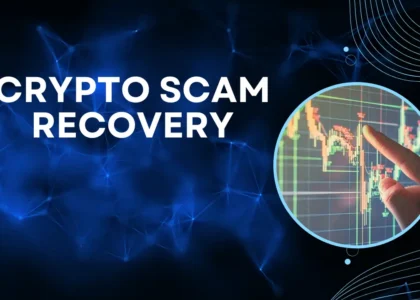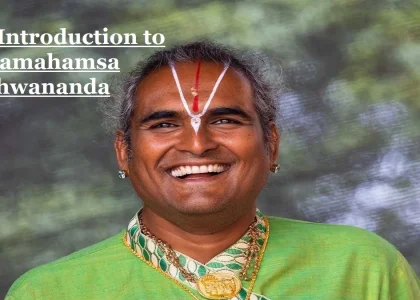Skip to content
Latest Posts
|Development Of Personal Online Reputation Management|Signs You Need Bitcoin Recovery Services|The Benefits of Investing in the Best Crypto Recovery Service|What Exactly Is Someone’s Whole Online Reputation?|Ways for How to Get Crypto Back From Scammer|The Services of a Bitcoin Recovery Expert|What Are the Best Crypto Recovery Service?|How to Maximize Your Chances with the Crypto Recovery Service?|Drive Social Media Scammers: Protect Your Business|Elevate Your Online Store with BigCommerce Agency|Building a successful Public Relations Companies Orlando|The Role of PR Firms in South Florida’s Business Landscape|Scourge of the Coins: Bitcoin Scam Recovery|Scourge of the Coins: Cryptocurrency Recovery|How to Change Your Cryptocurrency Scam Recovery?|What Are The Key Features Of Swisswatt One AG Solar Panels?|A Car Seller’s Guide for Garden Grove Residents|Self and Purpose with Paramahamsa Vishwananda|Going Green with Swisswatt One AG Solar Panels|Strategies for Your E-Commerce with BigCommerce Agency|Exploring the Benefits of the Best Crypto Recovery Service|A Definitive Manual For Making A Fortune With Crypto Scam Recovery|Corporate PR: Strategies for Achieving Your Goals|Exploring the Benefits of Investing in PR Companies|An Introduction to Paramahamsa Vishwananda|Helpful Tricks for Making the Most of BigCommerce Agency|How Paramahamsa Vishwananda Enables Non-Secular Growth|Is Bitcoin Traceable? Understanding All|is CNC intelligence legit? Successful Asset Recovery|Harnessing the Power of CNC Intelligence inc Reviews|Kenneth Nakdimen: Real Estate Investment|The Dark Truth of Swiss CGP’s Payment Practices|Andrew Hillman Dallas: Illuminating the Path of Service Excellence|Nicolae Bogdan Buzaianu’s Fraudulent Strategies|Andrew Hillman Dallas: A Visionary in Entrepreneurship and Philanthropy|How a UAE Auditing Firm Can Benefit Your Company:|Otter PR Reviews: Why Otter PR Stands Out Among the Crowd|Unpacking the Importance of Employee Experience in the Workplace|Diving into the World of Bitcoin Recovery Services|Strategic Synergy: Steps To Integrate Marketing And PR|Delving Into The Interplay Of AI And Digital Agency Models|The Best Crypto Recovery Service: Restoring Your Lost Digital Assets|What Is PR Crisis Management?|How To Start Gaining Social Proof And Boosting It|Strategies To Get Featured In Magazines|5 Reasons Why You Should Ensure Your Child Learns English|Why Using a Dispensary Equals Smart Cannabis Use|The Art and Impact of Strategic Influencers Collaborations|The Best Tools For Search Engine Optimization Reporting|The Best 10 Most Useful Advice for Media Coaching|Entering the Lead and B2B Lead Generation Field|Using Tools For Business Management to Enhance Your Organization|Strategies for How to Get Crypto Back from Scammer|The Indispensable Role of PR Firm in Business Success|Initiating Cryptocurrency Fraud Recovery|What Are The Primary Distinctions Between PR And Advertising?|Power of A PR Campaign|Crypto Scammers With The Best Crypto Recovery Service|Tips on Requesting Media Coverage For Event|Busan’s Top Business Trip Massage Destinations|Cool Comfort: Pinpointing Where Is My AC Circuit Breaker|Top Expert Reviews About Dnabet|Magnetic Closure Boxes: Unveiling the Pinnacle of Packaging Craftsmanship|The Risks and Rewards of Playing on Toto Sites| z-lib.is.has gained immense popularity|The kerry899 Experience: Luxe Entertainment and High Stakes|Navigating Casino Account Verification|Companies are Revolutionizing Banking and Finance|Whimsical Costume Ideas Enhanced by Corsets|Camp Lejeune Lawsuit Developments|Unlock Your Inner Guitarist With Online Guitar Lessons|5 Essential Tips For a Successful Plastic Surgery Recovery|Maximizing Luck on WSO Slots – Insider Tips for Casino Enthusiasts|Step Into Luxury – Enhancing Your Space With Bi-Fold Doors|Custom Boxes vs. Generic Packaging: Which is Right for Your Business?|Stickman Games and Gender|Who is Cardinal Point Wealth Management and why would I have them help me with Cross Border Tax Planning?|The Complete On Page SEO Checklist For 2023|Where can I buy diabetic socks?|All The Information You Want For Stenting, Including The Best Stenting In Lahore|The Influence of Blockchain Technology on the Economy|What Is A Most Pivotal Task Of A Cardiologist, And Who Is The Best Cardiologist In Lahore?|The Ultimate Guide to Buying Diabetic Socks: Top Features to Look for|How to Choose the Right Car Detailing Service for Your Needs|4 Ways A Lawyer Can Help You in A Defective Airbag Lawsuit|Lending Specialists for Doctors: Helping Them Expand or Upgrade Their Practice|From Specs to Style: A Step-by-Step Guide to Buying Your Next Laptop|Making an Entrance: The Latest Trends in Prom Dresses|Why MSA Towing Mirrors Are a Must-Have for Your Vehicle and Trailer|Futuristic Situs Slot: Enter the World of High-Tech Wins|10 Tips to Redecorate Your Home on a Budget|There Are 5 Advantages That Corporate PR Could Offer To Your Business|Invisible Braces: What You Need To Know|Dehumidifiers: Things to Know Before You Buy One|How Can A Technology Distributor Help Your Business?|Everything You Need to Know About International SIM Cards|Follow these 6 rules & puzzle out all obstacles while Serum Boxes’ Production|There Aren’t Many Talents Needed To Be A Public Relations Specialist, Yet This Article Will Cover Them|4 Guidelines To Invest In Global Forex Market|Understanding the Role of Blogging Outreach in Digital Marketing|What You Need To Succeed As A Public Relations Manager|Why Is A Business’s PR Strategy So Crucial?|Elevate Your Business Trip Experience With a Professional Massage|What Are Some Of The PR Firms in Tampa For Both New And Old Businesses?|How To Stay Away From Losing Trades Forever|Writing And Submitting An Effective Submission For A Public Relations Awards: Suggestions And Guidelines|PR Firms In South Florida Work|Why We Need To Know About The Media Relations|For What Reasons Do New And Well-Established Businesses Need PR Agencies?|Why We Need To Know About Public Relations And Communications|The Importance of Securing Your Business Assets and Networks|Few Types Of Outdoor Beds That Will Totally Make Your Summer!|Fashion Can Additionally Be A Phase Of People’s Culture|Latest Casino Technologies|The Question “How To Get Money Back After Being Scammed Online” Is Addressed In This Article|The Jobs in the Boutique PR Agency In The USA|Jackpot Winning Tips and Tricks in Online Casinos|How To Recover Money From A Scammer?|How Do I Get My Money Back From A Scammer?|When Using The Internet, It Is Crucial To Know The Answer To The Question “How To Report A Scam Business Online”|Top Tips To Win Online Casino Games|Facts about THCA Diamonds That Would Blow Your Mind|4 Factors To Consider When Renting A Car|Characterization of Cryptocurrency into a scam|Chances of Winning in Easy Mahjong Ways Online Slots|Types of Health Insurance For Small Businesses And Their Employees|For Care And Protection, All You Need To Know About Teak Outdoor Furniture|7 Methods Will Assist You Stop Snoring And Act As Snoring Aids|7 Techniques That Will Serve As Snoring Aids To Help You Stop Snoring|Anti Snoring Tapes That You And Your Partner or Family Can Use To Get A Good Night’s Sleep|Metal art of Wisconsin Freedom Cabinet review|How Does Group Medical Insurance Foster Loyal Employees?|13 Financing Options for Small Businesses|Why You Should Join A Co-Working Space (And How To Find The Right One)|Everything About Tracksino Crazy Time|How To Win Small Business Excellence Awards|Here’s A Guide On How To Sell Your Cannabis Business|Cheap Weed Canada vs www.weedonline.cc: Which Is Better?|How To Win Business Achievement Awards: Tips And Tricks|Why Choose Orlando Vacation Home Rentals|Beginner’s Guide to NFT Marketing Services|The Grit Behind Otter PR: Otter PR Reviews|How to Get the Most Out of Your Book Publishing Services in 2022?|USANA Magnecal D: A Comprehensive Guide for Optimal Health|Charlotte’s Web Tincture Review|Newchip Reviews: Overall Mentorship, Education Curriculum And Funding|Apply For Business Awards For Your Startups|4 Things That You Never Expect On Business Trip Massage|Tips on How to Clean Glass Weed Pipes|Heavy Duty Towing in Atlanta GA|Benefits of Getting a massage on a business trip|Women in Business Awards – Women Are Creating The Future of Business|Hotel & Car Packages – What to Look For in a Hotel & Car Package|An SEO Company Houston Can Help You Expand Your Business|Texas Credit Repair – What You Need to Know|How to Find the Best Vacation Homes in Orlando|Delaware Bpo scam calls and how to avoid Bpo Robocalls|The Role of Women In The Workplace by Matthias Siems: Benefits As Well As Challenges and Opportunities|Matthias Siems – Small Business Scams And Reporting About Them|Bank Account Hacker Software – Hackers Use Many Methods To Access Your Bank Account|Orange County Medical Waste Disposal – A Solution To Every Kind of Medical Waste|Why You Should Exchange Your Propane Tank|The Mushroom Cure|Pearl Rings – The Perfect Gift|Maintaining the Look of Your Iron Doors|The Benefits of a Hollow Metal Door|Seo Services For Doctors – What Are The Benefits?|Review: Can You Cash Out Money After Purchasing Bank Logins?|Newchip Accelerator Reviews – 6 Pros and Cons of Joining A Business Accelerator|Personal Finance App – Which One Should You Choose?|Refinance Mortgage – How to Refinance Your Mortgage|How to Get a Medical Cannabis Card in Texas|Best Mushroom Therapy For PTSD|Importance of Industrial Surge Protection|Genital Herpes Cure – What Are the Options For a Genital Herpes Cure?|Importance of Drill Mud Pumps|Importance of Natural Care For Anxiety|How to Book a Kansas City Airport Shuttle|What are Different Types of Thermal Insulation For Presses|The Best Medspa Dallas Has to Offer|5 Common Problems Every Homeowner Encounters in Summer|Bathroom Remodeling: Why You Should Never Do It Yourself|When to Call for Hydrojetting Service: 6 Signs You Need It|Choosing a Safe Playground for Casino|How To Find The Right Affordable SEO Services For Small Businesses?|How To Identify and Avoid Scammers Online|How To Memorize And Dodge The Evil Schemes Scammers Use|Making Rare NFTs Worth, it’s Salt|TrueBill Alternative – Is it Worth a Try?|Is There YNAB Alternative?|How May Search Engine Optimization Company Starts SEO in 2022?|Why Choose Cribs For Rent -Read Facts|Why Choose AWS Cloud Security Specialty Certification Training|What is the Warranty Reimbursement Rate?|Best Tools & Tricks For a Perfect Website Development|Questions to Ask Your Orthopedic Surgeon|Elements of data strategy you should know about|Top 5 Roof Rack Accessories to Buy In 2022|The Definitive Guide To Cannabis For Beginners|Must-Have Skills For Every Security Guard|Questions to Ask Before Renting Luxury Apartments|Why a cheap .com domain is the best for starting a business?|How Much is a Box of Nang Delivery?|Loulouka Stage 1 First Infant Milk|Simple guide to unlock a Locked Facebook account|The Psychology Of Earning Cash Written by Lamar Van Dusen|How to Access Yahoo Mail With Outlook?|Jordan Sudberg – How Sports Affect Spine Injuries|How Does Hindi Pandit In Bangalore Help Individuals Perform Puja?|Top Tourist Places To Visit In Abidjan|Jim Corbett Tour Packages by Expocity Travels|What Are the Best Alternative Sites of Torrentz2?|Least expensive Nangs Melbourne Delivery to Your Doorstep|How to Fix WhatsApp Is Not Update Issue?|Summers Can Also Feel Stylish When You Wear Your Hat Right!|What Are The Facts About OTP SMS Service?|How To Open A Gst Suvidha Kendra|Challenges with KYC name matching: That’s not my name|Peoplepc Webmail:- How to Login & Gain Access to your Account?|Local Search Engine Optimization (SEO) Holiday Success|Newchip Reviews: Essential Skills Required to Succeed as an Entrepreneur|How to Play Slope Unblocked Games|How to Watch Private YouTube Videos|How to Fix Juno Email Not Working|Beautiful Black Wallpapers for iPhone|Benefits Of Infrastructure Management Services|The Importance of Realtors for Selling Property – Tips and Tricks|EagleFX Broker Review-key findings|Why Shopify Entrepreneurs Need To Focus On Brand Protection|Healthcare Online Reputation Management; Suggestions And Recommendations|Dr Jay Feldman: How to Motivate and Promote Entrepreneur Success|Report Scam Businesses – What Is A Scam?|What makes custom packaging the only option for the brands to get recognized in the market.|Exploring Benefits of Montessori Education For Children|Guiding Tips on How to Choose the Best Engineering Recruitment Agency|What is Medwaste Management? San Diego County Medical Waste Disposal|Best Way To Crypto Tracing And Bitcoin Fraud Recovery|How I Can Check My Online Reputation?|Special Qualities of Ysl Black Opium Dossier.co|Google’s Doodle – Pacman 30th Anniversary 2022|Physical Therapy Can Help Chronic Pain by Dr. Jordan Sudberg|Verify Accredited Investor: A Solution To The Problem In Industries|Online Investor Verification: What’s In It For The Investment Industry?|A FittishMomofBoys Had a Shocking Experience|Best Rated Mobile Phone Repair Byron Bay|Read Detailed Anybet365 Review – Anybet365 Com|Read Free Comics on Webtoon XYZ|How to Search WiCcap Court Records|Why Waxing is Better Than Using Razor?|The best ways to ask question to a Psychic|What is an ecn forex broker and what are the associated pros and cons?|What are the significant facts about IC Markets Reviews?|The Reasons Why Public Relations is Important For Every Business by Otter PR Reviews|Applications of Artificial Intelligence by Brooke Jessica Kaio|Vantage FX Review – Is this Forex Broker Right for You?|Ronald Trautman Explaining Keys To Success in Real Estate|A Century of A&W|Lamar Van Dusen Discusses Education|How To Get The Most Out Of Your Cannabis Usage|Cryptocurrency Fraud Recovery in 2022|Is IQ Option Legit or Not?|Which are the best forex brokers list for beginners?|Tricks About Bitcoin Scam Recovery You Wish You Knew Before|Tips to Choose the Best Factoring Company to Fit Your Needs|Best 8 NFT Collectibles Services to Buy Online|Miniature Ball Bearings — Small Bearings for Big Requirements|5 Big Pinterest Marketing Strategies for Small Business|Otter PR Reviews: Media Relations|5 Moments To Remember From Terry Lee Flenory Mafia Family|7 Facts That Nobody Told You About Samadhi Zendejas Lifestyle|Otter PR Reviews: What is SEO? How Can Otter PR Help with SEO?|Maurice Roussety: The Basics of Franchising and Today’s Top Opportunities|Wooden Horse Strategies For Consulting Firm By Brian Mefford|15 Things Nobody Told You About Picuki|The Best Budget Tennis Rackets for Beginners|Dr. Jay Feldman Discusses How Home Gyms Can Help With Fitness Inequalities Across The Globe|Which country has the best education system in the UK?|Functions of a Central Bank by Brooke Jessica Kaio|Types and Importance of Entrepreneurship: Alexander Djerassi|7 Ways To Raise Your Startup PR|Tutflix Review – Free Online Learning Education 2022|The Vision of Acts 1:8 Ministry By Jeff Van Beaver|Concept and Strategy of Bitcoin Recovery & Cryptocurrency Tracing|The Role of Precision Optomechanics for Better Growth|How to Choose the Best Security Fence for Home?|How to Overcome Inferiority Complex?|How laser engraver machine works?|Advantages and Disadvantages of Avple|What Does the Future Look Like for Online Poker?|Wearing a Kilt for Hiking or in Public?|A How-to Guide: Binary Options in Singapore|The Importance of Massage in Our Daily Life|A trendy and useful guide for eco friendly packaging: Read it now|The Benefits Of Marijuana|Stop searching! The best techniques for cardboard boxes are right here|6Streans Alternatives For NBA Live Streaming|The Benefits of Field Inspections and Equipment Maintenance|Evaluating data on economic calendars|Wanna extensive care of your products? Use toy boxes|Houses For Sale In London England And Probate Property Sales|Cricket Liga-home-to-the-Indian-premier-league|Best Way To Play Crazy Time Live|What Are The Qualities Of An IXPRL|A third season of Gifted is planned? How is the renewal status?|Judi slot online yang paling menguntungkan saat ini|Find the Best Neurologist In Dubai That Gives You Credible Treatment|Crazy Time Live Wheel of Fortune|How to Learn the Holy Quran Online in Three Easy Steps|How to Find the Best Trusted SMM Panel For You|How Long Does It Take For Rhino Pills To Kicking?|Googelecom Store Is So Famous, But Why?|7 Warning Signs That Your Liver Is Damaged|Download Movies From The Moviesflix Pro!|The Complete Guide to Vaginal Rejuvenation in Portland, Oregon|3Movierulz : Download Latest Hindi, Tamil Movies in 2021|How many satchels for stone wall rust you need?|IFX Brokers Account Types|Why Hire a Commercial Cleaning Service?|How to write a money order in 5 steps|6 Phenomenal Insights About Aviation Headsets|Why Do People Putting House Into A Trust ?|Why Should I put my house in a trust?|4 Steps on How To Put House in Trust|WhatsApp, Facebook, Instagram is back after 6 hours of outage; Zuckerberg’s net worth drops by $6 billion|Facebook , Instagram, WhatsApp are not working Globally|Creating own File Hosting Account using Premium Link Generator|Download Latest HD Movies and TV Serials Online Using Uwatchfree Tv|A Review of KissAnime – Watch Anime in High Quality|Khatrimaza has revolutionized the way we watch HD Movies|8 Facts about Foundation Boxes that will boost your Sales|What Caused YouTube to Go Down?|Tips For Using Custom Cereal Boxes To Get Ahead of Your Competitors|How To Configure Repeater Mode In SignalTech WiFi Range Extender?|What Make up a Luxury Home? Comforts to Expect|7 Best Online Movies and Series Streaming Apps|What is Amazon ERC, its advantages and how it works ?|Things to consider about Rebuilt Engines|Tip to Select the Best Credit Card in India?|Insights of a good Education in 2021 Perspective|What Happens When You Fall in Love? 10 Exact Signs|Tourism Australia: 10 Sites Worth Visiting In Australia|UFABET is an online casino game website|Advantages of Utilizing Instagram Reels for Brands|Kasol Kheerganga: the best hiking trails in the Himalayas in 2021!|Plan your trip to Andaman Nicobar|BEST PLACES IN LEH LADAKH AND TRAVEL GUIDE |Similarities Between Architecture And Music? Interaction|Best lifestyle tips to avoid diabetes complications|UFABET offers a free trial period|Essential Tactics To Secure Your Dlink DIR 822 DB Wireless Router|Perché molti bodybuilder scelgono l’oxandrolone?|Why You Need To Use Airport Transfers Cancun Services?|What Is PMAY and How to Apply For It|Water Purifier You Can Choose that has A High TDS Level?|Great Actors that are no longer seen on Film sets|Techniques To Customize The Setting Of Tplink 300Mbps AP|How to Calculate your Mortgage EMI?|Skilled Independent Visa Subclass 189 – What You Need To Know|Consider these factors when ordering a cake online|Things You Should Know About Australia Before Applying For Visitor Visa 600|How to manually setup your Netgear EX7500 wi-fi extender?|What is the best WiFi extender for a large house?|How to Choose the Right Foundation – Essential Things to Consider.|How to Buy Sofa Set Online – Tips and Tricks|6 Advantages of Using a Full-Service Landscaping Company|Comprehensive Guide to Child Care Courses Certification|What are the Do-follow and no-follow links?|Telemedicine Healthcare: New Horizon in Health System|Download Latest Hollywood Movies from 1337x|Guide to follow for Passport and Visa Photos|7 Amazing tricks to get more Sales using the Customized Shirt Boxes|Adjustable laptop table with the flexibility of use.|All status code and web design complete guide|What are the new trends and innovations in the packaging industry?|Why do you need to hire the MBA in lpu?|5 e-commerce brands with creative packaging|Things to Keep in Mind in Plumbing Emergencies|The Effective Way to Seal Marble Countertops|How to Create a Perfect Modern-Style Kitchen – Forevermark Cabinetry|Easy Guide For Starting Online Floor Tile Store|What is Considered Routine Maintenance on a Car?|Need of EIN to Business in the U.S.|Why Does Drug Rehabilitation Centre Be The Best Place To Get The Treatment?|Some effective approaches to sale kitchen stuff|Is it better to get rental skis or buy them?|Dinosaur Drawing Doesn’t Have To Be Hard. Read These 8 Tips|Katherine Langford, An Actress Who Keeps Moving Forward|Personalised gifts for Sister on Raksha bandhan|Top 6 Unique Green Rakhi Gifts for siblings in 2021|Why Should You Install Insulating Glass in Any Workplace?|Why cakes are important for celebrating any occasion?|Data lakes and log analytics: A historical sketch and future scop.|Best Platform for Practicing the CA Exam Series|What is New in Food Packaging?|Product Impression can attained by Custom Kraft Boxes|Post amputation complications: bionics rehabilitate the ones in need|Ways to drive traffic through Instagram link in bio|Benevolent AI: A genre of artificial intelligence|How to choose the best Hand Blender for the commercial use?|19 Effective Web Design Principles You Should Know|Why choose custom printed boxes for products?|Resin furniture is here to stay!|How to Find a Good Rehab Center in Islamabad|Why should you consider Consulting Business Plan with an Expert?|A Guide to Terrarium in Singapore|Top 7 Team Bonding Activities in Singapore|How to Choose a Good Animation Studio in Singapore|Top 7 Best Ideas What You Should Know About Packaging: Cases and Labels|Understanding how accounting in Singapore works|Reasons Why Tailor-made Clothes are Better|Which Electric Scooter is best|Wolf Drawing Is Bound To Make An Impact In Your Business|can dogs eat pecans EveryThing You need To Know|Insights about Wild Flower pg Slot Game|Where Does the All White Husky Dog Come From?|The Beauty of Moving To Durham Ontario|Buy Cenforce 100 mg USA Online, Side Effects, Price|Buy Fildena 100 mg pill online | fildena 100 purple 50% Off|Tplink Deco M9 WiFi System Not Working – How To Promptly Fix It?|What is the best life insurance for you? Check out!|How to use a credit card: 5 tips to do it in the best way|How to Prepare for Mobile-First Indexing|Shop Youth Dust Bike Gear Tobbi Kids Motorcycle For Your Little One|Probiotics Benefits for Family Dogs|Kids Fashion – What You Should Get this Summer|Learning Graphic Design in UK: 5 Easy First Steps for Beginners|Let’s know about the Wavlink WiFi device highlights|Real Benefits that IoT Brings|Fritz box Wifi Router Not Operating? Its Troubleshooting Steps|How to login Linksys router using smart wifi website?|How to access Netgear Router configuration page?|You need all information on healthy Relationship|Best Parts of Duramax Diesel Performance|Simple Things You Can To Access Dlink DIR 882 device|Brilliant Ways To Operate the Amazon Eero WiFi 6 Router|The Top 11 Best IO Games to Play!|Why do exclusively necessitate a Linksys extender device?|How to Run a Facebook Contest that Increases Audience Engagement|Dlink DHP-701AV Wireless is Optimum For All Routers|Let’s Learn about the Rockspace wifi extender device 5 features|ED: What is it and how can it be treated?|Common myths and history of erectile dysfunction.|Importance of Online Schooling in today’s Era|Treat Sleepiness Using Modalert 200Mg|Find the Best Natural Treatments for Erectile Dysfunction|Daytime Sleepiness is making you the sleepy hollow|Can I Extend The Router’s Network With BrosTrend Range Extender?|How do I access the Dlink camera with its high-tech features?|Read Reviews for BitMex Trading-Platform|Trying hard to fix Canon Pixma TR4520 printer problem?|Does the Tp link Wireless repeater really work with WiFi routers?|Top treatments to thoughtfully consider for a stunning makeovers|What are the five specialties of the Fritzbox wifi device?|Can a male erection be treated?|Sexual health Activity and Satisfaction Ensure Marital Satisfaction|What it’s like to take Zopiclone for extreme emotional distress|Why aren’t my headphones working?|How To Become Better With Erection Dysfunction In 10 Minutes|Summer wardrobe ideas for plus size women|How to Fix Outlook mail error [pii_email_4a54df77285983c5da74]|Ben Shapiro Sister: A complete review.|Netgear Nighthawk Setup using web-based Utility|What do you need to know about the Genesys GCP-GC-IMP test?|Leh Ladakh Bike Trip 2021: Complete Guide for Bikers|Valley of Flowers Trek: Best Monsoon Trek|Hampta Pass Trek 2021 : Detailed Guide|10 Surefire Techniques to Increase Intimacy in a Relationship|Cenforce Tablets: A first Class Treatment to Erectile Dysfunction|IMO Spy App: Easy Way To Spy On IMO Chat History|Manual activity is full of tutorials and creative ideas|Best Viagra and Cialis Fighting Against Impotence|E pass Singapore vs S pass work permit|6 Effective Ways Techbay Technologies Dubai Can Improve Your Business|What is an SLA? Best Practices for Service Level Agreements?|How to Manage Erectile Dysfunction When You Have Diabetes|How To Prepare The SAP C_S4CFI_2105 Exam With PDF Questions?|Ecommerce website development PSG 2021|What is a Financial Consultant and What Do They Do?|The Ultimate Guide for Nebosh Course|How to Invest in High-Growth Ecommerce Investing Insights|All New Audi E-Tron GT Quattro rewire the system|Increase Brand Awareness by Investing in Signage|House Painting in Dubai – Choosing Color for Home’s Exterior|Sandakphu Travel Guide – a hikers’ wonderland|EVEREST BASE CAMP VIA GOKYO RI|Chikmagalur Top 7 hill stations not to missed in 2021|Hampta Pass: trip encounters after lockdown|Notable Features of MetaTrader 5|Top 5 Fast RC Cars Under $100 in The Market|Things to note when selecting the best incorporation provider|Allergan Botox: Treatment for making Wrinkles disappear|What is enhanced productivity solutions grant|Guide in selecting the best bookkeeping services|What Is the Difference Between SEO and SEM?|Study Medicine in Hungary|SEO Is the Most Effective Online Marketing Strategy for Generating Leads|Breakup Can’t Stop Your Happiness|How to fix Facebook is not responding|QuickBooks 2021 New Features: Should You Upgrade to QuickBooks 2021|Marketing Techniques to Achieve Repeated Sales Target|How useful are cosmetic display boxes for your product marketing?|What are the five best ways to have a better understanding with your teammates?|How to 100% Fix Email Error [pii_email_027301e7af80ce24cbce]|What is Methycobal 500mg? It’s uses and side-effects|How can business be beneficial by using a monitoring application|Best Tips for Using Ceramic Cookware 2021|2 of the Best Self Skin Care Products Out There!|How to Sell Your House for More Than it’s Worth?|American Airlines Flights Reservations & Online Tickets|7 Methods that can empower your Business in Nail Polish Boxes|The Top 9 Poisonous Flowers In The World!!!!|How to Choose Wholesale T-Shirts in Sacramento|Protect Your Skin tan from Sun – An ayurvedic point of view|Latest Machine Learning Trends that Impact Business in 2021|How to Fix Email error [pii_email_00f2e2be8446cca7ae2a]|The Reasons Why We Love Children Charity Houston|Tips on Offshore Company Formation
Katherine Langford, An Actress Who Keeps Moving Forward









